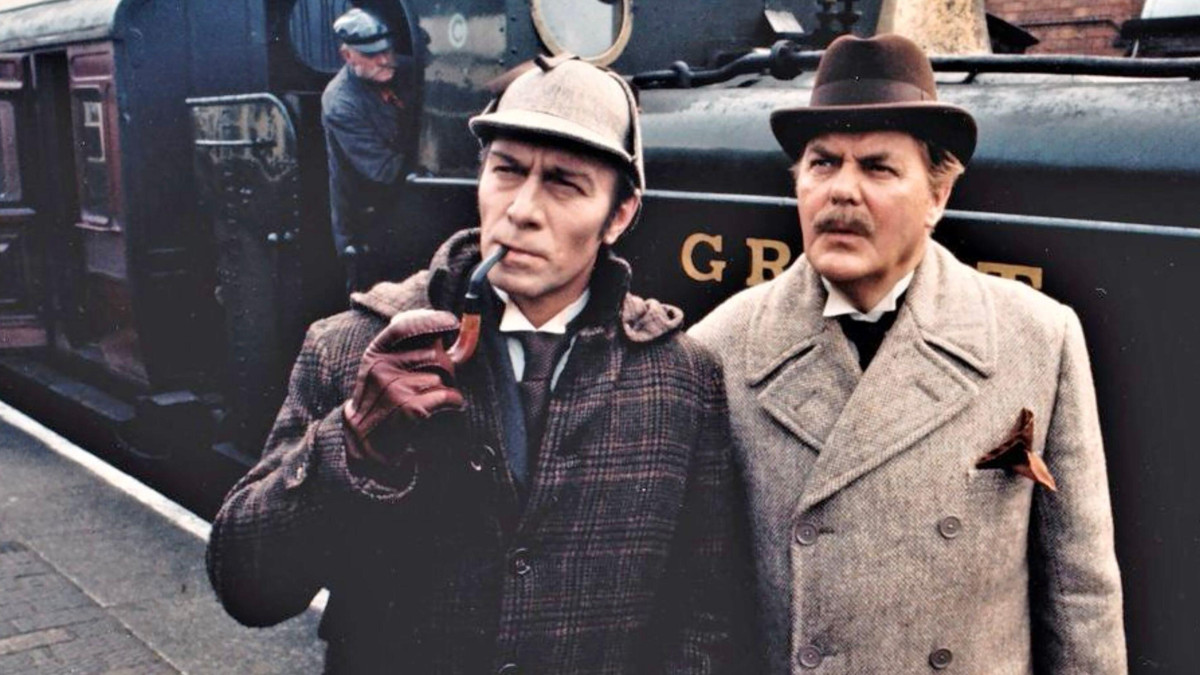Why Arthur Conan Doyle was Sherlock Holmes’ biggest hater, according to an actual historian

Sherlock Holmes is quite possibly the most famous fictional character in existence. In total, Sir Arthur Conan Doyle penned 62 stories featuring the diligent detective. From those 62 stories, an entire “franchise” was born, with countless adaptations making their way to the radio, the stage, the cinema, and the small screen.
Everyone has their favorite version of Sherlock Holmes, whether that’s the original version created by Doyle on the page or the versions portrayed by Basil Rathbone, Christopher Plummer, Benedict Cumberbatch, Robert Downey Jr., or any other number of famous (and not-so-famous) actors. We love Sherlock Holmes because he sees the world in a peculiar, detail-oriented way; he’s brilliant, rude, strong, vulnerable, he’s all those things and more. Yet one person despised Sherlock Holmes and his enormously powerful fictional legacy, and that person was none other than Holmes’ creator, Arthur Conan Doyle.
How, you might ask, could Doyle ever hate a character that brought him so much fame and fortune? It’s a complicated question; one that historian, TV presenter, and Sherlock Holmes super-fan Lucy Worsley was determined to unravel. In her new three-part documentary series Lucy Worsley’s Holmes vs. Doyle, beginning on PBS on Sunday, December 8, Worsley works tirelessly to understand Doyle’s complex relationship with his most famous creation and why he felt such animosity toward the pipe-smoking detective.
Throughout the series, Worsley leaves no stone unturned, exposing what can only be described as Doyle’s toxic masculinity, his imperialist pride, his obsessive interest in spirituality, and his own attempts at becoming a detective. Most importantly, however, Worsley examines Doyle’s relationship with money and social standing and how that influenced his writing career.
Worsley surmises that part of Doyle’s hatred for Sherlock Holmes stems from his family’s financial insecurity during childhood—while Sherlock Holmes brought Doyle fortune and fame, two things he undoubtedly coveted, he also saw Sherlock as a “low-brow” character. Having fought his way to the top, Doyle was determined to stay there, mingling with the upper echelons of society in a way he couldn’t when he was younger. When I spoke to Worsley during a press roundtable for the Holmes vs. Doyle documentary and questioned what may have influenced his hatred of the detective, she explained:
“When he was growing up, his mother was kind of just clutching onto the bottom of gentility, and had one or two things been slightly different, then the whole family would have sunk back as they saw it into a working-class lifestyle. There wasn’t much money when he was growing up in Edinburgh and there was this whole issue of the absence of his father. His father was in an asylum for an alcohol disorder. So, in Victorian terms, these are dark family secrets, shameful things that you don’t want to get out. So what he wanted to do was to climb up out of all of that and to become a great man of letters. And he saw it as Sherlock was sort of pulling him down again, because Sherlock had this lowbrow, trashy reputation, having been so commercially successful.”
The documentary makes it abundantly clear that Doyle’s relationship with Sherlock Holmes was complex and layered. Yes, he hated Holmes for lowering his reputation, in a sense, but he was also undeniably dependent on him. Even though he’d successfully killed off Sherlock Holmes in The Adventure of the Final Problem—Sherlock confronts criminal mastermind Moriarty on a mountaintop in Switzerland and they both plunge to their deaths in a waterfall—years later, he was still “forced” to bring him back, providing an explanation that was, to put it bluntly, weak. It didn’t matter, though—readers and publishers alike were ecstatic that Sherlock Holmes was back and Doyle was once again raking in the dough, his legacy as a writer forever entangled with the detective who lives at 221B Baker Street.
Each piece of evidence Worsley uncovers contributes to our understanding of the famous writer. For instance, he was a trained physician, obsessed with becoming a military man. That made me question if part of his hatred for Sherlock Holmes also stemmed from the fact that he had, perhaps subconsciously, written himself into the story as Dr. John Watson—an army medic—and whether his annoyance with Sherlock stemmed from jealousy. People wrote letters to Sherlock Holmes, addressing him as if he were a real person, yet Sherlock was not the physically strong and perfect specimen that Doyle was obsessed with becoming. When I asked Worsley if this might have contributed to Doyle’s relationship with Sherlock, she responded “I think you’re very right, if it’s possible, that you could be jealous of a fictional character.”
That’s what’s great about the Holmes vs. Doyle documentary; there is no way to know for certain what was going through Doyle’s head every time he wrote a Sherlock Holmes story, and yet, Worsley’s efforts give viewers an unflinching look at the man behind the world’s most famous detective. It allows us to psychoanalyze him ourselves while critically picking apart his life and stories, too.
Lucy Worsley’s Holmes vs. Doyle airs December 8-22 at 8 PM ET on PBS, PBS.org, and the PBS app. The full series is available on BBC iPlayer in the U.K. where it is titled Killing Sherlock: Lucy Worsley on the Case of Conan Doyle.
Have a tip we should know? [email protected]
